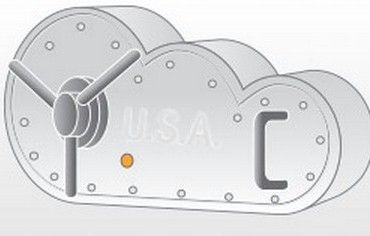New Tools From AWS And A Price Cut

Amazon Web Services said it is extending its Domain Name Service called Amazon Route 53 to include support for domain name registration along with management and geographical DNS. The cloud giant also rolled out enhancements to its AWS Trusted Advisor tool launched last year, including a package of best practices. The advisor is now available for free on the AWS Management Console.
Previously, registering a domain required using an external registrar, then creating a hosted zone on the Route 53 platform where the domain's entry was configured to point to Route 53 name servers. AWS said Route 53's domain name registration upgrade would allow users to handle the entire process within its management console. Support also extends to API access, it said.
The registration process also includes automatic creation and configuration of a hosted zone on Route 53.
AWS also said it is reducing the price of Route 53 queries.
A new geo routing feature is designed to deliver content based on the originating location of DNS queries. Users can select the static or dynamic AWS resources to deliver content. For a global application, route requests to Amazon Elastic Compute Cloud (EC2) instances, for example, would be hosted in the same region to boost performance and help comply with regulatory requirements.
AWS said price reductions include standard and location-based routing. Standard queries are priced at $0.40 per million queries for the first billion per month and $0.20 per million queries after that.
Location-based queries are priced at $0.60 for the first billion monthly queries and $0.30 per million after that. Meanwhile, Geo DNS queries cost $0.70 per million for the first billion per month, declining to $0.35 per million after that.
The new Route 53 features and price reductions take effect August 1.
The Trusted Advisor acts as a custom cloud tool that is used to scour AWS platforms to, among other things, help users boost performance, plug security gaps. and save a few bucks in the process. The company said in a blog post it is adding four new best practices, including:
- A Service Limits Check that inspects usage and alerts customers when they are using more than 80 percent of allocated resources like EC2 instances or storage volumes.
- Security checks that spot and alert users to "overly permissive" access to EC2 instances along with assistance in spotting malicious activities.
- Alerts to help control user and group access to customers' AWS resources.
- Multi-factor authentication to improve security by requiring additional authentication data from another device.
AWS also said the Trusted Advisor is now a standard part of its management console. The new dashboard tracks cost optimizing, performance, security, and reliability and is available immediately.
Trusted Advisor has saved AWS customers hundreds of millions of dollars since it went into beta in early 2012, and it is one of the reasons why AWS is seeing its growth slow. The other is the ongoing cost cutting. Even as AWS is nearly doubling the amount of capacity it is selling on its cloud each year, revenue growth is not keeping pace as AWS competes against Google, Microsoft, and others in the public cloud. But Amazon is a retailer, and it wants to make it up in volume to drive out the competition. Thus far, this strategy has worked, but Wall Street is starting to get impatient with Amazon's expansion into new markets and aggressive pricing at the expense of profits.
Related
George Leopold has written about science and technology for more than 30 years, focusing on electronics and aerospace technology. He previously served as executive editor of Electronic Engineering Times. Leopold is the author of "Calculated Risk: The Supersonic Life and Times of Gus Grissom" (Purdue University Press, 2016).











